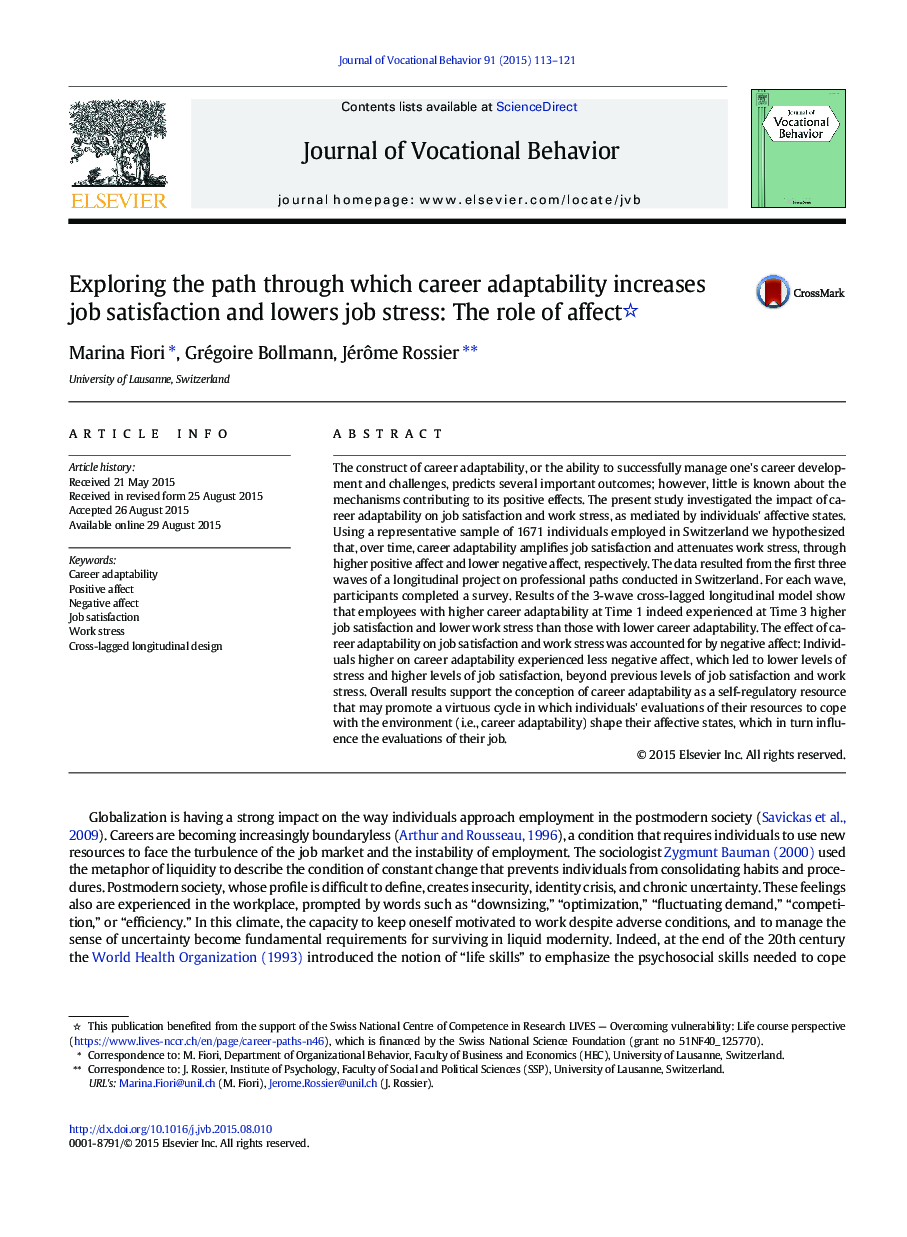| Article ID | Journal | Published Year | Pages | File Type |
|---|---|---|---|---|
| 886742 | Journal of Vocational Behavior | 2015 | 9 Pages |
Abstract
The construct of career adaptability, or the ability to successfully manage one's career development and challenges, predicts several important outcomes; however, little is known about the mechanisms contributing to its positive effects. The present study investigated the impact of career adaptability on job satisfaction and work stress, as mediated by individuals' affective states. Using a representative sample of 1671 individuals employed in Switzerland we hypothesized that, over time, career adaptability amplifies job satisfaction and attenuates work stress, through higher positive affect and lower negative affect, respectively. The data resulted from the first three waves of a longitudinal project on professional paths conducted in Switzerland. For each wave, participants completed a survey. Results of the 3-wave cross-lagged longitudinal model show that employees with higher career adaptability at Time 1 indeed experienced at Time 3 higher job satisfaction and lower work stress than those with lower career adaptability. The effect of career adaptability on job satisfaction and work stress was accounted for by negative affect: Individuals higher on career adaptability experienced less negative affect, which led to lower levels of stress and higher levels of job satisfaction, beyond previous levels of job satisfaction and work stress. Overall results support the conception of career adaptability as a self-regulatory resource that may promote a virtuous cycle in which individuals' evaluations of their resources to cope with the environment (i.e., career adaptability) shape their affective states, which in turn influence the evaluations of their job.
Related Topics
Social Sciences and Humanities
Business, Management and Accounting
Marketing
Authors
Marina Fiori, Grégoire Bollmann, Jérôme Rossier,
